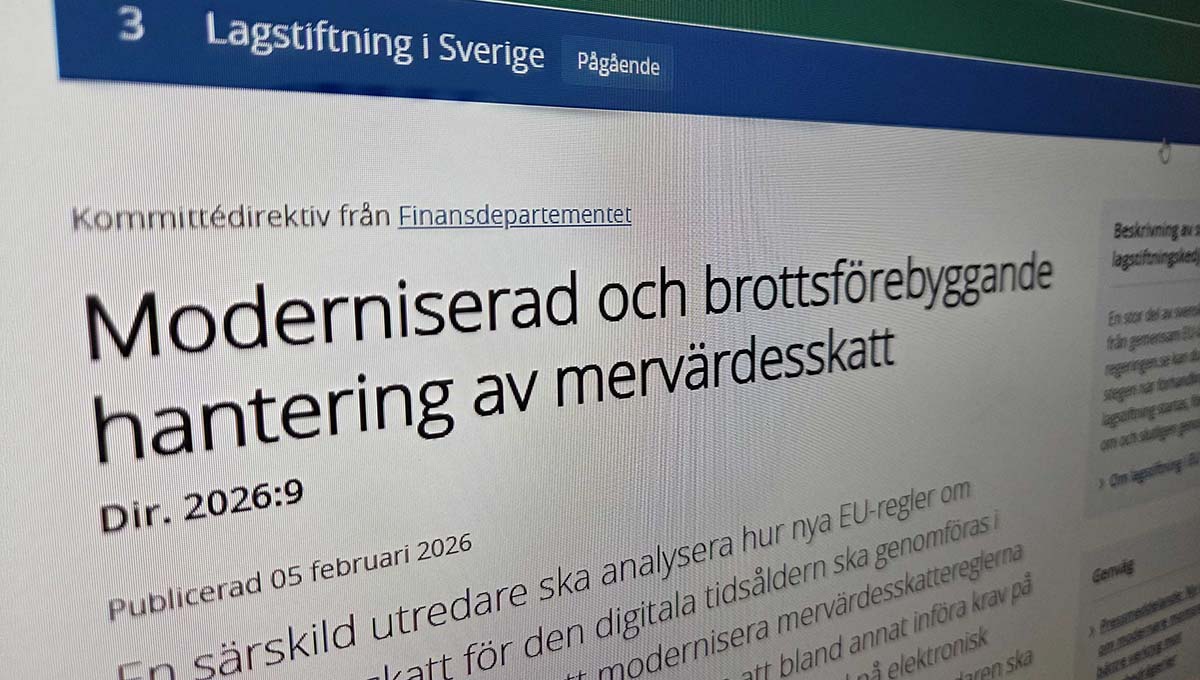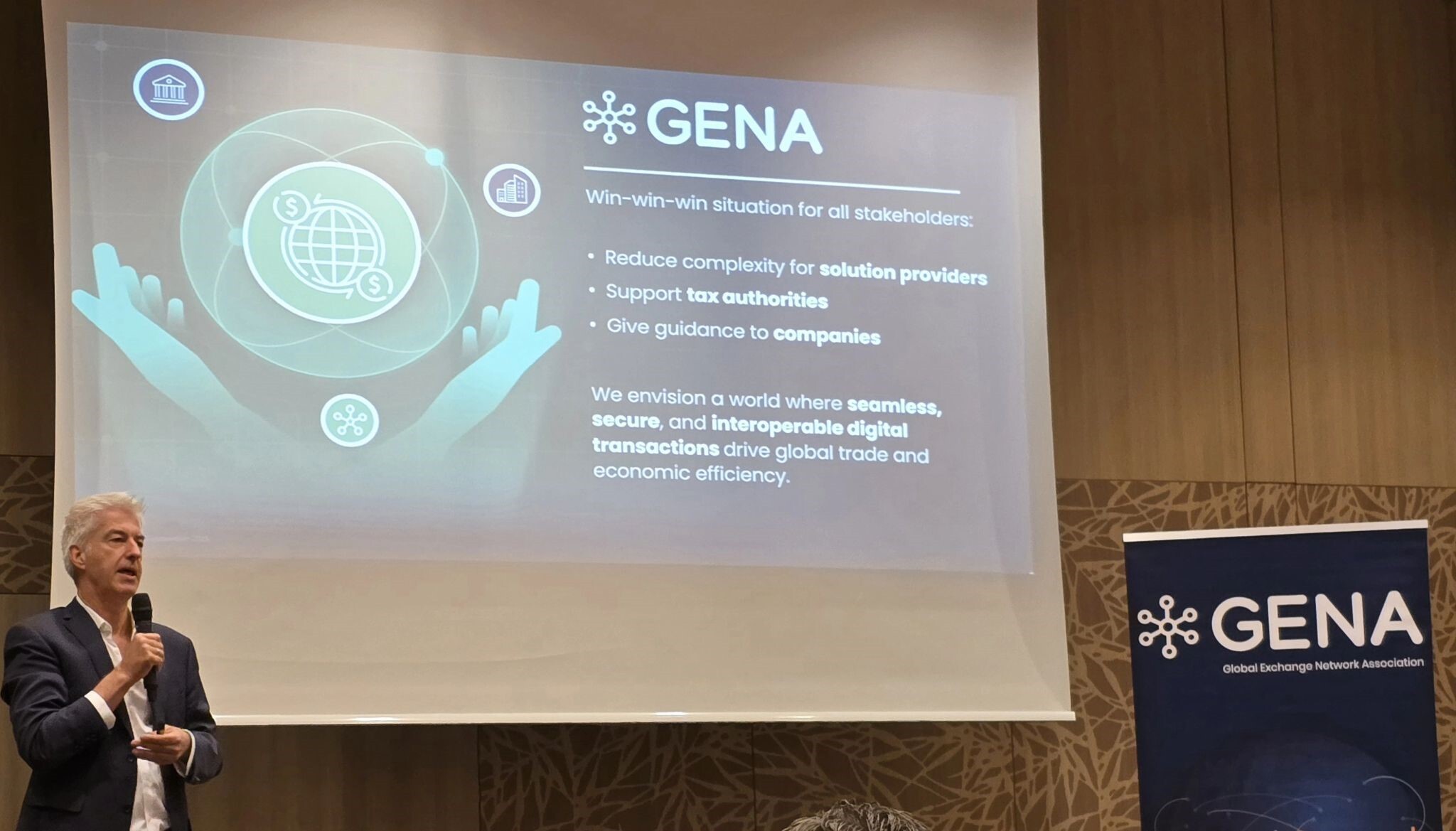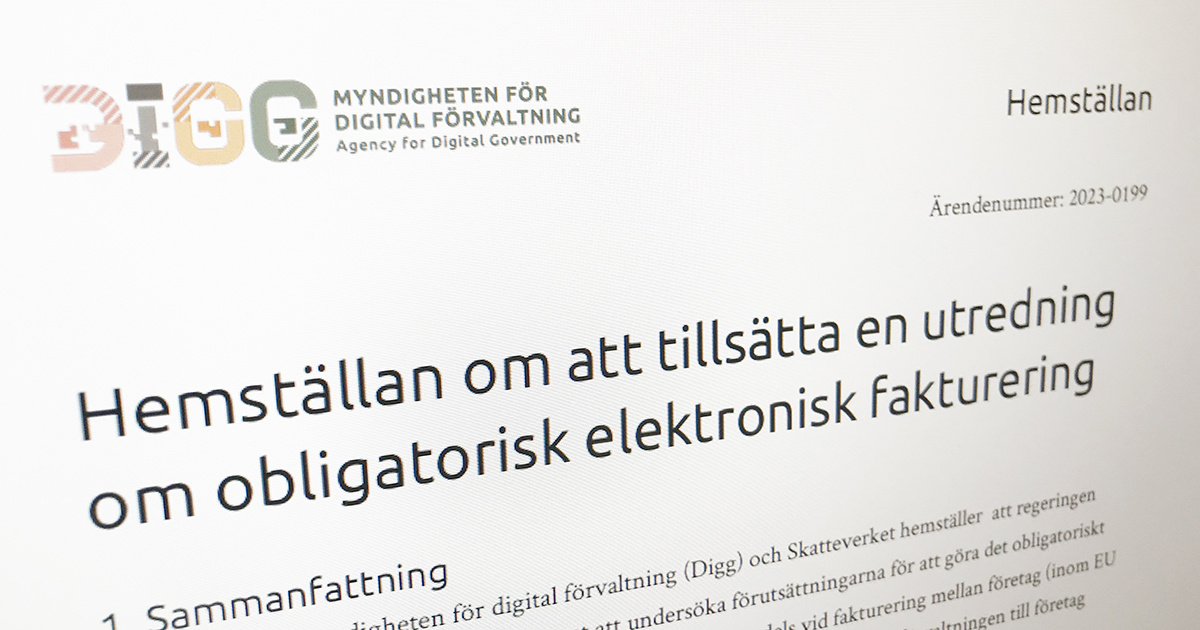With this digital strategy, Sweden will never be the best
BLOG POST - Niklas Andersson, Head of Products, Inexchange
Sweden's current Minister of Civil Affairs Erik Slottner (KD) recently presented the country's digitalization strategy for the next five years (2025-2030). The aim of the report is to achieve common goals and contribute to the digital transition.
The motives are good, but the content is contradictory.
The document highlights the Riksdag's decision that Sweden should be the best in the world at using the opportunities of digitization, but at the same time it is written that key digital reforms should not be introduced above the stated minimum level.
So how do we want it? Should we be the best or not?
Sweden's digitalization strategy for the next five years was presented by Minister Slottner at a press conference at the end of last month (28 May). Launched as a "new direction for Sweden's digitalization policy", the strategy covers five areas: skills, business, governance, welfare and connectivity. Among other things, Slottner said during the press briefing that "we have a clear focus on using digitalization to simplify everyday life."
Of course, that sounds great. It is a wish that most of us share.
Start investigating now
But if a direction is set to fulfill the above ambition, the decisions and visions should also be such that they accelerate digital development - and not slow it down.
NEA (Nätverket för Elektroniska Affärer) agrees with this, i.e. what the organization perceives as the inertia of the current government, that the current passivity in relation to comparable countries such as Belgium and Norway, risks damaging Sweden in the long run. To be more precise, we are talking about the adaptation to the reform decided by the EU, which means that from July 2030, all cross-border invoicing within the Union must be done electronically.
A number of EU countries are currently adapting to the reform - known as VAT in the Digital Age (ViDA) - while our decision-makers seem to be sitting on their hands.
"Sweden has so far taken a more cautious approach", says the NEA in its report "80% e-invoicing in Sweden 2030". The association calls on the government to consider the request it has received from three authorities to investigate mandatory e-invoicing for companies and government agencies. The request was submitted two and a half years ago. "Sweden has already lost a lot of time. It is high time that an investigation is launched", says NEA.
Irrelevant reform?
Whether or not legislation is needed is debatable. It is statistically proven that a strong majority of the country's companies are positive to e-invoicing. The willingness to invoice that way, and to make the handling smoother and open up for more useful data, is increasing every year, but at a pace so slow that it tends to create a backlog to our allies in the EU.
Since the digitization strategy presented extends to 2030, the year when the EU rules on mandatory e-invoicing come into force, it is curious and remarkable that ViDA is not mentioned at all in the report. There is no good explanation as to why it is omitted. The only thing that is stated is that "in developing the strategy, the Government has taken into account the relevant parts of the EU Digital Agenda for the Digital Decade."
This can be interpreted as the government perceiving ViDA as irrelevant.
Becoming the best at something requires a sincere will to achieve that goal. If we look at the area of digitization of business, the strategy lacks that edge. The text in that case expresses a middle-of-the-road philosophy without the hunger to drive development. Last year, an implementation council was set up. That sounds ambitious. If the intention is to embrace technological advances and foster a true pioneering spirit, that is. However, the strategy clearly states that the Council "will strengthen the competitiveness of Swedish companies by avoiding implementation above the minimum level."
So, we have an implementation council that is supposed to counteract implementations.
It's definitely worth thinking about.
No one becomes the best at half speed
No, this does not feel very visionary. The criticism directed at the digital roadmap can be considered justified. When Åsa Zetterberg, who sits on the government's Digitization Council and is CEO of TechSverige, was interviewed by Dagens Opinion, she said that the roadmap presented by Erik Slottner was a relatively tame compote. "I don't see any powerful trend breaking in the strategy," she said.
The same view has been expressed elsewhere. It could, and should, be taken up a notch. It is an inspiring goal for Sweden to become the world's best at digitization, and the conditions are in place to succeed.
But you can never be the best at half speed.


